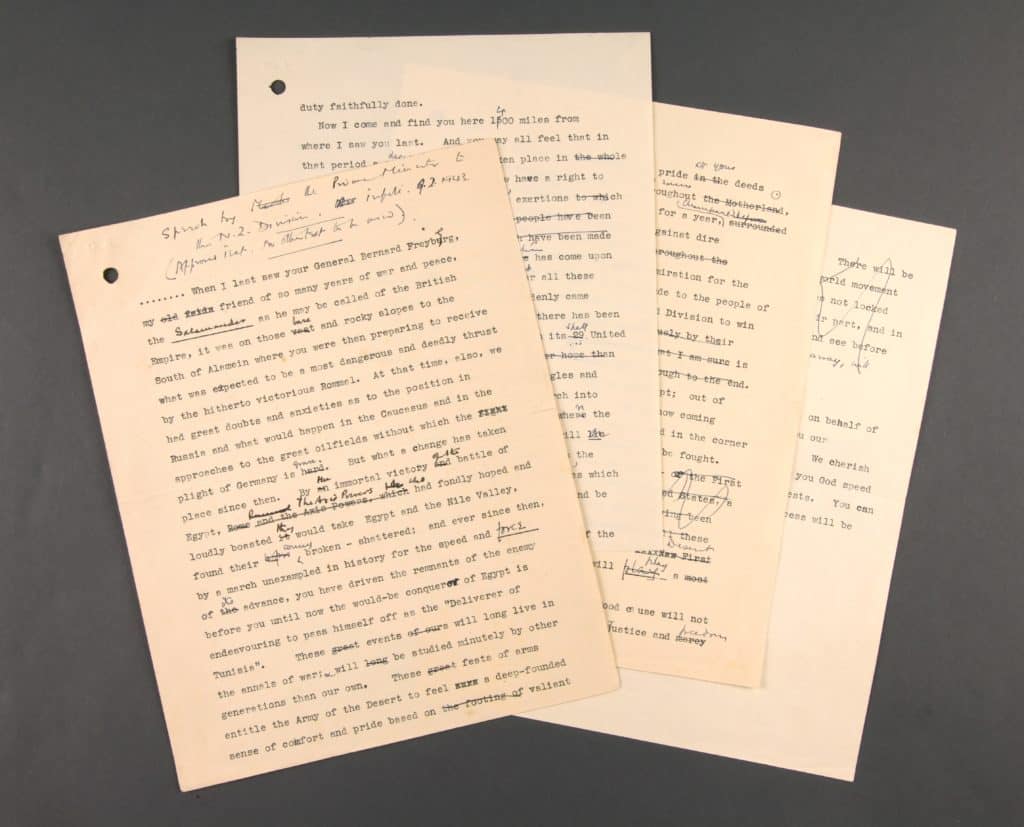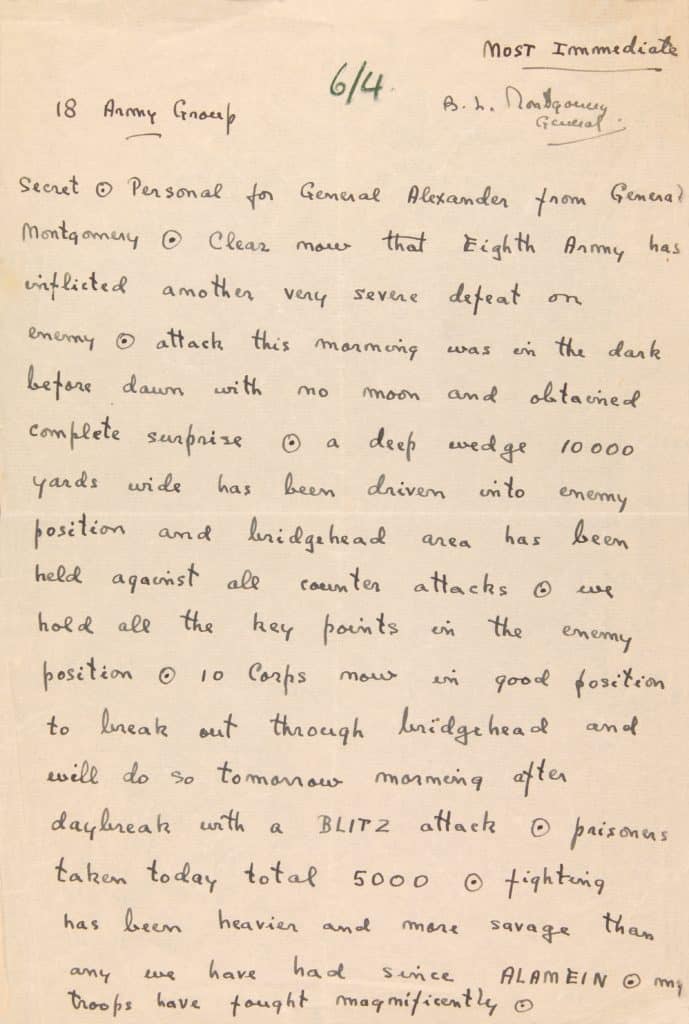In 1943, the success of Allied military campaigns in North Africa saw a great turning point in the war. The Allied forces’ success in the campaign was a turning point because it involved their first major victories, and eventually allowed them to invade Europe from the south. This enabled them to gain a foothold in Europe, setting the Allied army on the path to VE Day.
John Henderson (often known as Johnny), an Old Etonian, was a member of the 12th Lancers Cavalry Regiment. At the end of 1940, the regiment left for Egypt where in fought in El Alamein. After the second battle of El Alamein (1942), Henderson was chosen by General B.L. Montgomery to be one of his ADCs (Aide-de-camp – personal assistant or secretary), a role he held for the next four years. An archive of papers were collected by Henderson and given to the library by him in 2001.


(L) Winston Churchill, Speech to the New Zealand Division, Tripoli, 4 Feb. 1943, corrected typescript. [MS 436 02 01]. Gift of J. R. Henderson, 2002.
(R) General Bernard Montgomery, Message to General Harold Alexander, 27 March 1943, autograph manuscript. [MS 436 02 02]. Gift of J. R. Henderson, 2002.
These two documents from Johnny Henderson’s World War II archive relate to the Eighth Army’s North African campaign following Montgomery’s victories at El Alamein and El Agheila. He entered Tripoli on 23 January 1943 and Prime Minister Winston Churchill made a triumphant visit eleven days later. That evening Churchill wrote a speech to deliver to the New Zealand Division the next day, which he asked to be typed up. He then corrected the text with Henderson’s help. It was stirring stuff. ‘Struggles and victories lie ahead. You will march into fairer lands. You will march into lands when the grim and severe conditions of the desert will be but memories; but, having endured those conditions the fighting qualities which you have displayed will only shine brighter and be turned to greater advantage.’
The following month those New Zealanders joined British forces to fight the Battle of Mareth under Monty’s command. The first few days went badly until Montgomery decided to gain the initiative with a strong blitz wide on the enemy’s left flank, the famous ‘left hook’. He reported its success in a message to General Alexander, written succinctly without a single correction or alteration. When Montgomery was fighting, Henderson reported, his mind was always razor sharp. [extract from Challenge and Change, pp.138-139, Eton College Library 2012].



